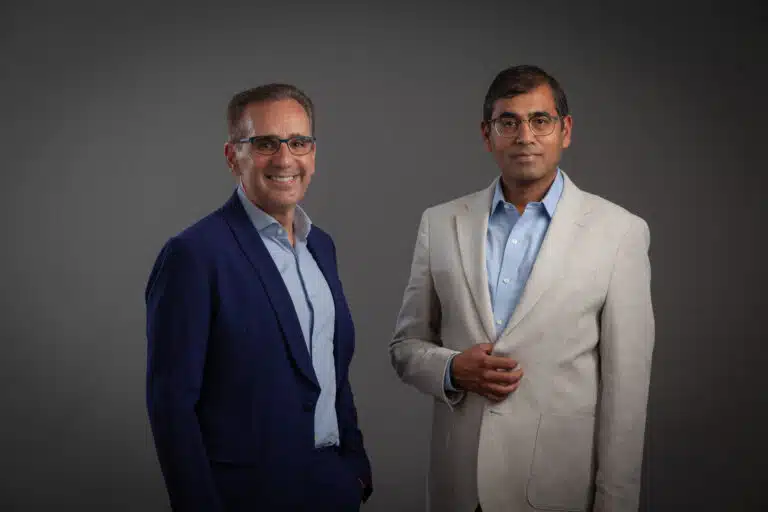Who’s leading digital transformation?
The CEO? The CTO?
In a sense, it’s actually the COVID-19 pandemic that is most causing ripple effects in the digital transformation happening in business.
That was the message of a conversation November 19 with Talent Tech Labs’ co-founder Jonathan Kestenbaum and Eightfold AI President Kamal Ahluwalia. (You can view the recording here.)
“Nothing could have prepared us for what has enfolded,” Ahluwalia said, referring to the tumultuous 2020. “Kudos to everyone for showing resilience and flexibility.”
In addition to a lot of that resilience, Kestenbaum and Ahluwalia said they’re seeing the following as a result of the pandemic:
Changing tech stacks
Kestenbaum said what he’s seen as particularly hot: Video interview technologies, virtual event platforms, virtual college recruitment, and an interest in behavioral assessments. “Can we assess for culture fit?” Kestenbaum said companies are asking themselves. “Soft skills, EQ, passion, compassion, these are the things I think folks need to focus on.”
Ahluwalia said he’s seen an interest in not just the candidate experience, but the recruiter experience as well. Recruiters not wanting to miss a candidate who’s good but could fall through the cracks; talent teams looking for interview-scheduling help; and better ways to capture feedback from those doing the interviews.
New kinds of management
Ahluwalia said companies are asking potential managers: “How do you manage people remotely?” And they’re trying to figure out, “Does this potential manager have empathy?”
They’re looking, he said, to hire managers and employees who are agile, flexible, and able to handle the rapid transformation happening.
Diversity through potential
After years of false starts, “This time the focus on DEI is sustainable,” Ahluwalia said. And, “if diversity was in everyone’s top three (challenges), now it’s in their number one or two,” Kestenbaum said.
Ahluwalia said there’ll be more scrutiny on identifying potential. Who’s likely to succeed? Who’s capable of doing what? Companies, he said, are looking for analytics to show where exactly they have a diversity issue, so they can address the solution.
Ahluwalia gives the example of a job description that asks for someone who knows both Python and R. The majority of people who know both languages are male. Hiring managers, when calibrating a job, need to consider whether knowing both languages at the get-go is truly necessary in a role. Perhaps the focus should be on who has the potential and capability.
Learning through projects
Ahluwalia said that “classes only solve so much.” Companies are looking for employees to build skills and showcase their existing capabilities by taking on internal projects. This gives employees the chance to use skills they may not be using on a daily basis.
Combining technology and humans
Both Kestenbaum and Ahluwalia suggested that the “technology takes jobs” mantra has been overblown. Ahluwalia said that the goal of Eightfold AI’s technology is to help companies “make more informed decisions” when it comes to promotions, succession planning, and hiring, as opposed to replacing people. He said McKinsey & Company summed this concept well when it said, “Jobs lost, jobs gained, jobs changed.” The economy is transforming, and in turn so are jobs. This is requiring companies to think about who, among employees in declining areas of their companies or who have been laid off from shrinking industries, can be reskilled to succeed in growing/hot areas.
A focus on business problems
“You’re not buying AI to buy AI,” Kestenbaum said. You’re buying AI because, for example, a lot of candidates are applying for your jobs because of high unemployment. You need to find a better way to match them to jobs, as well as to match people for promotions and for succession planning. Ahluwalia agreed, saying his recent research (such as with Talent Tech Labs, and with talent leaders such as at BNY Mellon ) has focused not on AI itself, but on the difference it can make in business to solve the challenges talent leaders are having now. That focus, he says, can you help you lead your company’s digital transformation.



